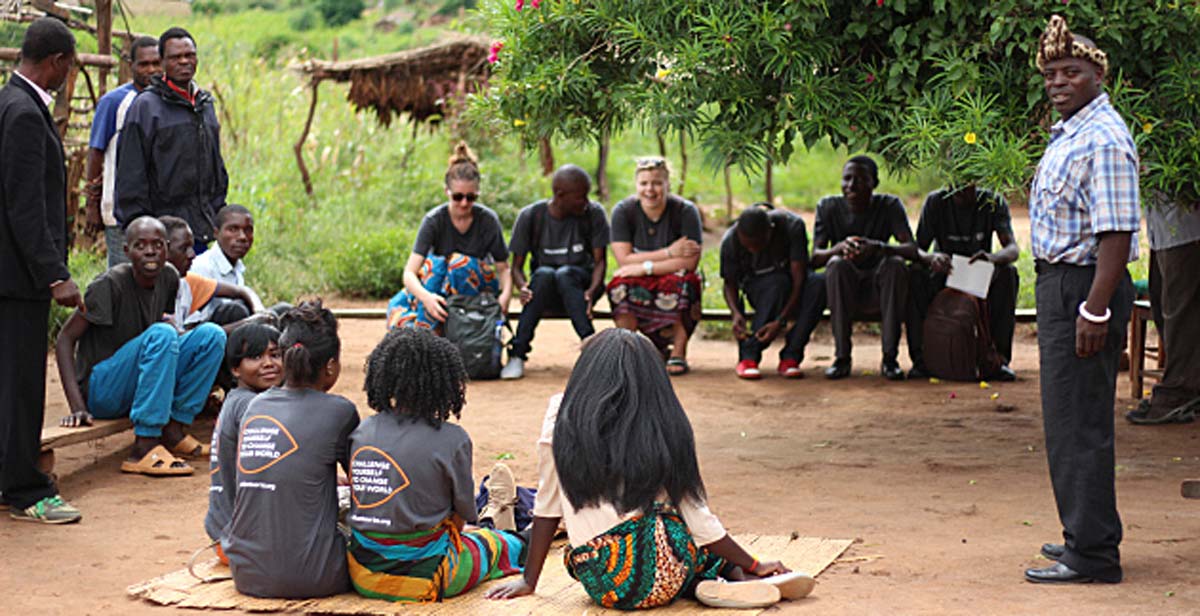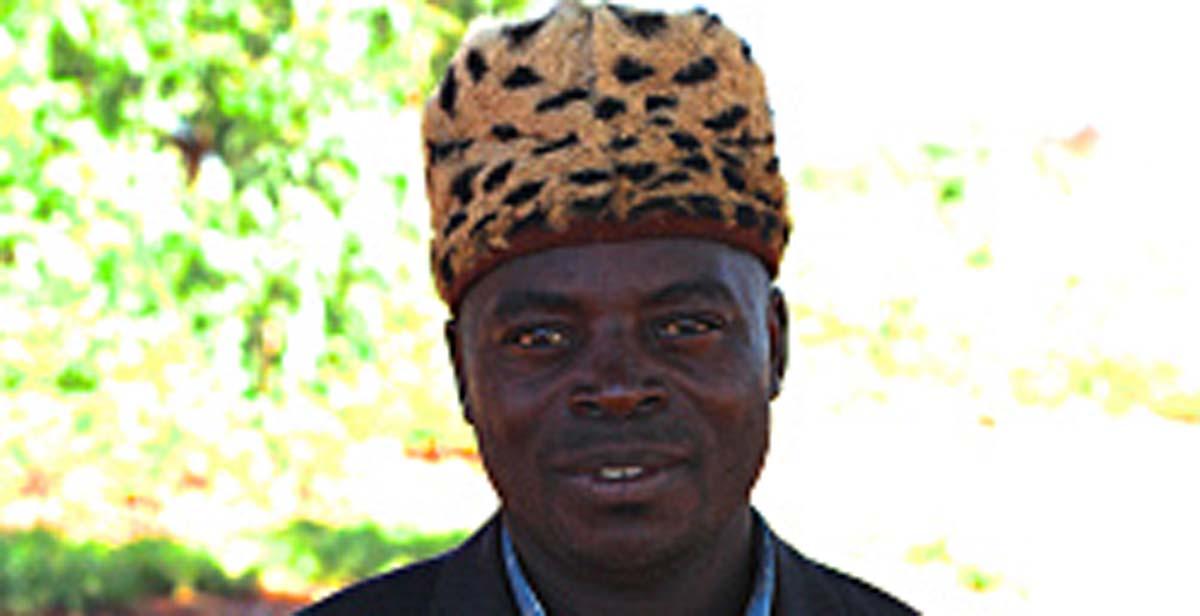Following a fifteen-minute walk through surprisingly beautiful flowering tobacco plants, preceded by a typical Malawian bus ride of flailing limbs as a result of both the road conditions and an attempt to dance to the African music, we were greeted by Boston L.M. Mayotcha, the High Chief of Mayotcha village. Dressed in smart-casual attire with the addition of a fur headdress and a bone bangle, he greeted us with a welcoming smile.
These were not accessories but heirlooms. Passed down from his father and further generations, they signified his role in the community. Despite inheriting his position as Chief, Boston comes across as a natural leader and boasts a very commanding presence highlighted by the instinct to correct my posture when I’m in his company. A religious man, assumed by the Jesus-themed ringtone that tended to interrupt proceedings, he oversees 486 community members. The Chief’s main job of delegating roles and maintaining community harmony is made instantly easier by the optimistic and refreshingly positive outlook that his people possess considering the difficulties they face.
The Chief talked at length regarding the challenges the community encounter day-to-day. Challenges that are such basic necessities, we in the West would barely give a second thought as we follow our repetitious routines. Translated from his native tongue of Chitumbuka, Boston stressed that the community has a large problem with hygiene and sanitation, and not problems with bodily odours as the typical Englishman may portray as problematic. The Mayotchas face real issues; non-existent education regarding hygiene and sanitation, insufficient facilities and a poor supply of water to drink and clean with.
The latter point in particular was made clear (or not so clear) when we were training the community in the construction of tippy taps; hand-washing facilities made from readily accessible materials. The water the Mayotchas drink and clean with is light brown in colour, resembling that of the Thames or maybe even murkier if at all possible. The Chief stressed this as a development issue, a setback that Malawi has a problem with on a large-scale with the rural areas such as the rolling hills of Mayotcha, a few kilometeres outside of Rumphi, being most heavily affected.

Despite the major problems faced by the Chief and his people, petitioning these issues with the government is complicated and the community is suffering heavily because of this. When I asked why this was, at first all he let out was a hefty sigh. Due to the expense of travel to government offices, it makes the opportunity to travel and lobby issues few and far between for Boston and other village representatives. So on the most part, the Mayotchas have to wait for BOMA (British Overseas for Military Administration) to come to them, the contentious name still used for government offices, lingering from Malawi’s British colonial past.
It was stressed that these visits are infrequent and when asked if the government tended to act on these petitions, the Chief responded with a shake of the head and “yayi, yayi.” The government has promised funds for their issues but years have passed without action. However, Boston doesn’t blame the government. He has no problem with officials or the controversial president but states that the difficulties lay in that Malawi itself is very poor, and therefore the government doesn’t have the means to resources. On paper this makes sense, with Malawi having one of the lowest GDP per capita in the world, but from an outsider’s perspective it seems that a lot more can be done.
Instead, the Mayotcha village rely on NGOs for help with their issues such as Progressio and SPRODETA (Small Producers, Development and Transporters Association), with whom I am currently working with. The Chief told me of the great impact these NGOs have had on his community. Since the introduction of tools, fertilizer and more effective irrigation methods, there has been a much better maize yield meaning increased food production and, in his words, less hunger. The work with SPRODETA has continued with the focus now on improving the levels of hygiene and sanitation in the community.
When asked his hopes for the future of his people, the Chief talked about hygiene and sanitation as the next major step, how a safe water supply would improve the life of all 486 Mayotchas and how this would have a great affect in all aspects of their lives. Ultimately, the High Chief wants the very best for his people, and it is nothing less than is deserved. Boston ended by saying that his main ambition is to pass his position to his eldest son with the community in a much better place than he inherited it; a feat that I already believe he has achieved.
Written by ICS volunteer Christopher Purnell



